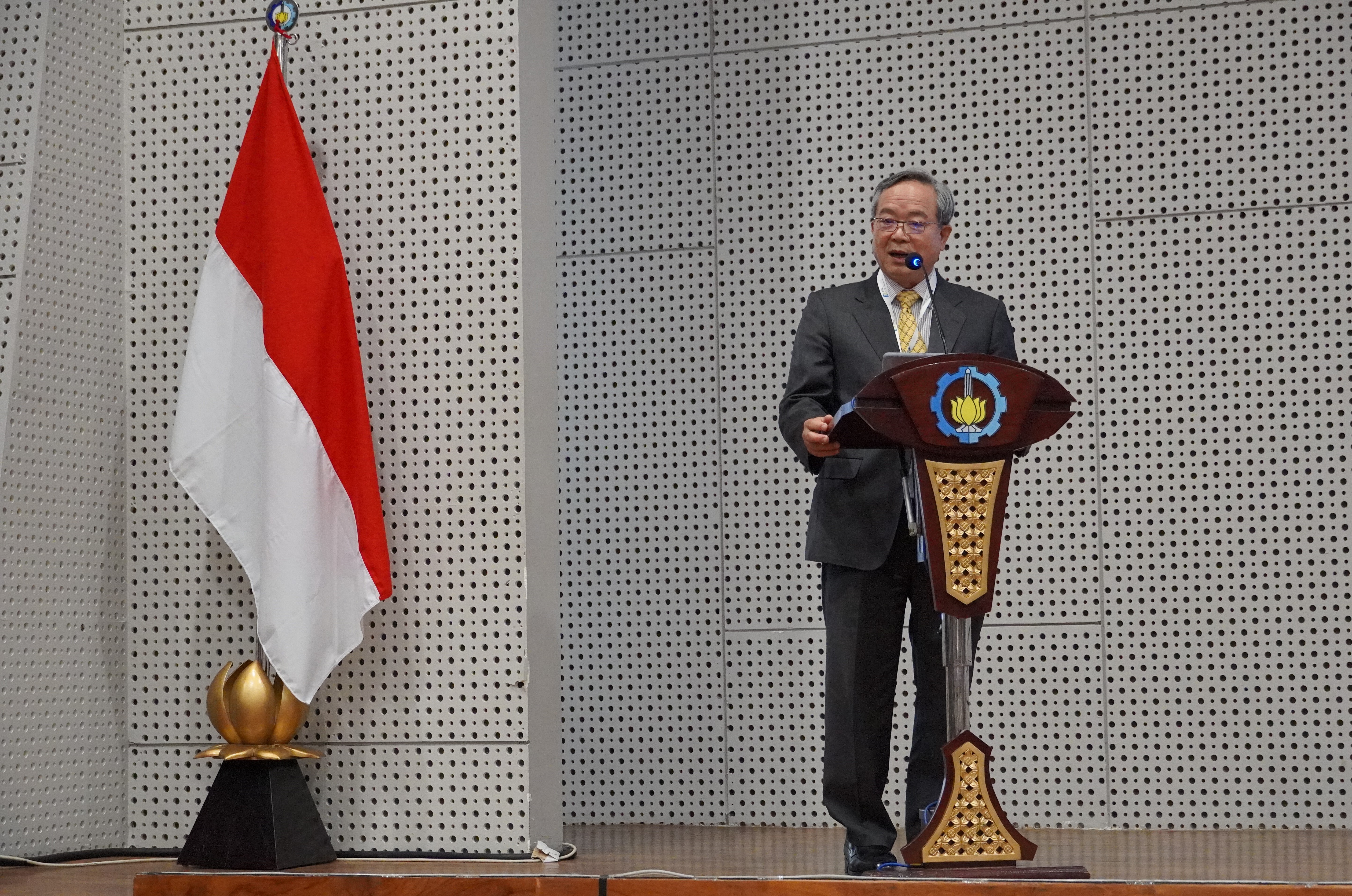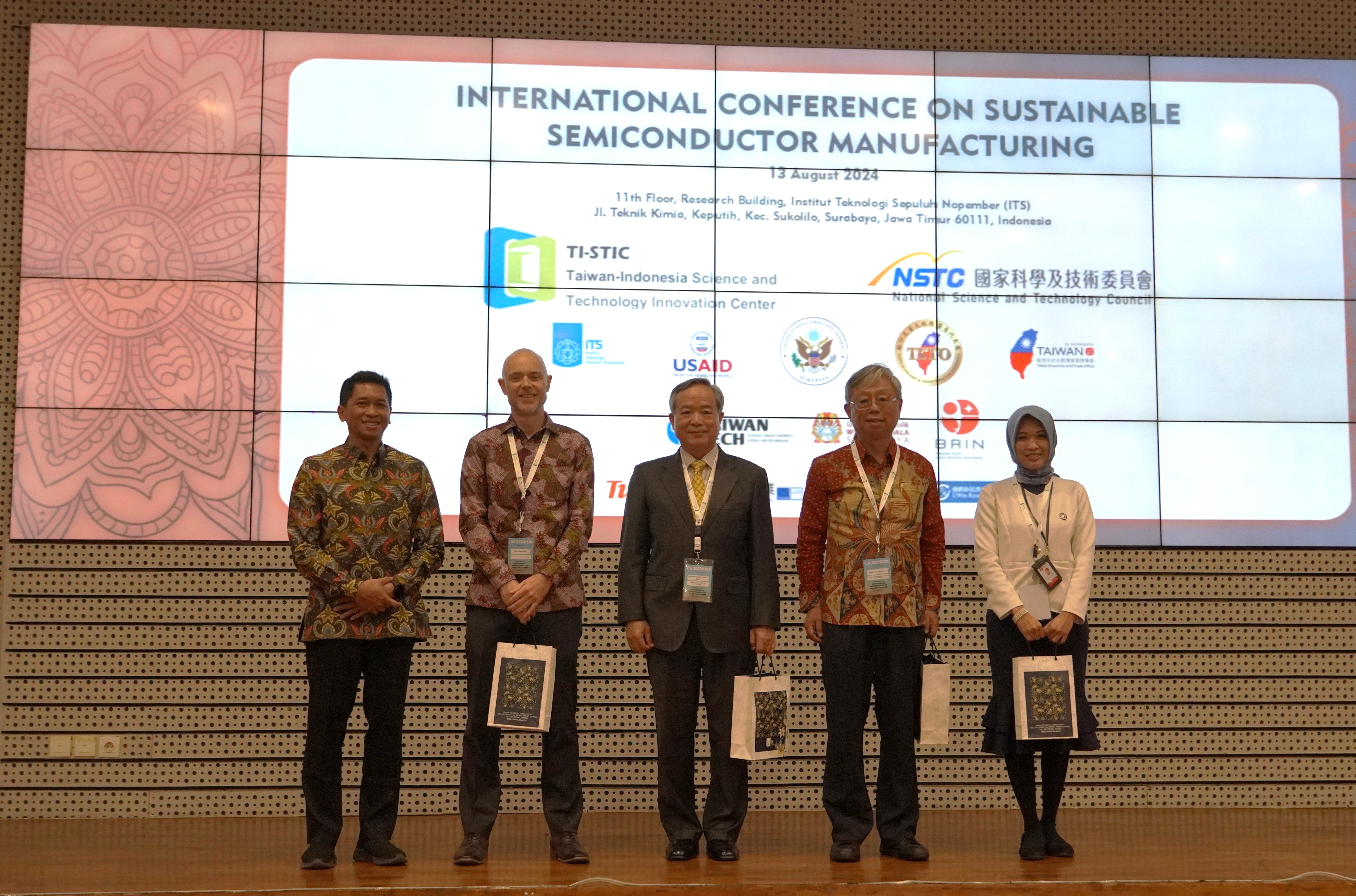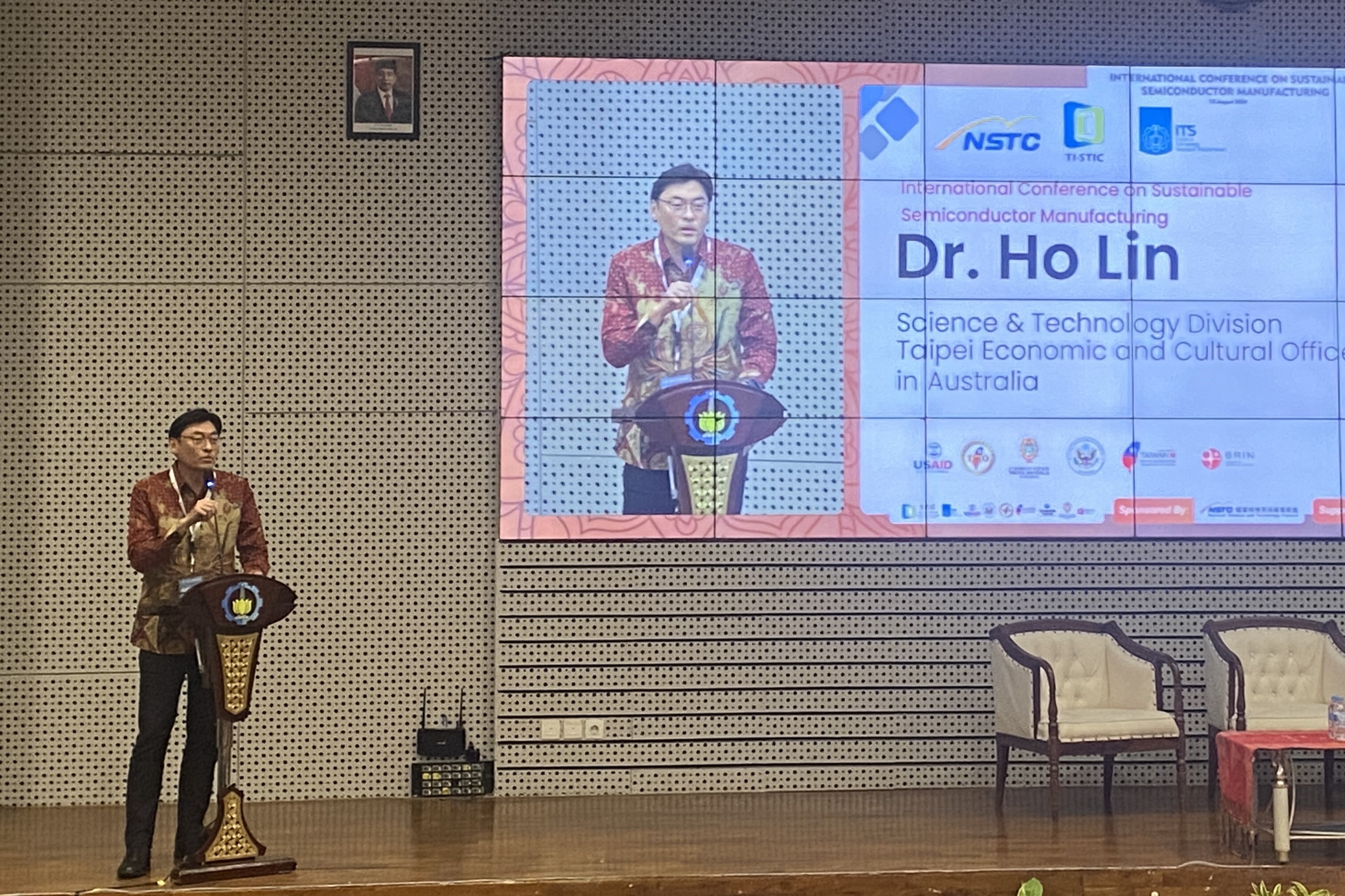Taiwan Tech bridges International Industry-Academia Collaboration, partnering with the U.S. to create a Semiconductor Talent Training Base in Indonesia.
Taiwan plays a crucial role in the global semiconductor industry. Not only is it outstanding in semiconductor innovation and research and development, but it is also very important to cultivate transnational talents. On August 13, Taiwan Tech held the “2024 International Conference on Sustainable Semiconductor Manufacturing” at Sepuluh Nopember Institute of Technology in Surabaya, Indonesia. This marks the first joint semiconductor symposium by Taiwan, the U.S., and Indonesia. The event saw participation from various government departments, including Taiwan's National Science and Technology Council, the Taiwan Representative Office in Indonesia, the U.S. Consulate in Surabaya, and Indonesia's National Research and Innovation Agency (BRIN). Experts from academia, industry, and research from the three parties and senior executives of the multinational ICT industry also discussed collaboration and sustainable development in semiconductor manufacturing, with nearly 200 professionals, business representatives, and students attending.

The “2024 International Conference on Sustainable Semiconductor Manufacturing” invited industry-academia-research experts from Taiwan, the U.S., and Indonesia to give special lectures and forum exchanges on collaboration and sustainable development in semiconductor manufacturing. The event attracted nearly 200 scholars, experts, and students.
Taiwan's ambassador to Indonesia, John C. Chen, highlighted that Taiwan has extensive knowledge in semiconductor technology, the U.S. leads in chip design, and Indonesia is actively developing semiconductor talent. Currently, 15 universities in Indonesia have established chip design centers to advance research and collaboration in chip design. He expressed his honor in witnessing the three parties overcoming geographic and cultural differences to explore collaborative opportunities in the semiconductor field.

Taiwan's Ambassador to Indonesia, John C. Chen, delivered a speech.
Bambang Pramujati, President of Sepuluh Nopember Institute of Technology in Surabaya, noted that Indonesia has essential raw materials for the semiconductor industry, such as nickel and silica sand, etc., but it still needs to enhance its expertise and talent. He expressed that through collaboration with Taiwan and the U.S. in talent development and technology research, Indonesia aims to build a sustainable and self-sufficient semiconductor industry before the centenary of the founding of Indonesia in 2045, thereby boosting the country's overall economic development of Indonesia.

Bambang Pramujati, President of Sepuluh Nopember Institute of Technology in Surabaya, delivered a speech.
Chris Green, Consul of the Consulate General of the United States in Surabaya, stated that the U.S. and Indonesia have collaborated for over 75 years in political, economic, and social areas. He emphasized the U.S.'s commitment to supporting Indonesia in achieving its goals in semiconductor manufacturing, innovation investment, and talent development.

Chris Green, Consul of the Consulate General of the United States in Surabaya, delivered a speech.
Taiwan Tech's Vice President Jhy-Chern Liu added that 40% of the university's international students come from Indonesia, and it has the highest number of Indonesian graduate students with master's and doctorate degrees in the country. This year, Taiwan Tech will establish an Advanced Semiconductor Technology Research Institute with new faculty and equipment. This initiative will benefit the global semiconductor industry, whether students enter the workforce or engage in academic research. Additionally, Taiwan Tech will collaborate with Arizona State University and Sepuluh Nopember Institute of Technology in Surabaya, Indonesia to form a trilateral semiconductor alliance, promoting innovative research and talent development.

On August 13, Taiwan Tech and Sepuluh Nopember Institute of Technology in Indonesia co-hosted a conference on “Sustainable Semiconductor Development”, with representatives from Taiwan, the U.S., and Indonesia to attend. Pictured left to right: Bambang Pramujati, President of Sepuluh Nopember Institute of Technology in Indonesia; Chris Green, Consul of the Consulate General of United States in Surabaya; John C. Chen, Taiwan's Ambassador to Indonesia; Jian-Wei Chen, General Manager of TUL; and Ajeng Arum Sari Loka, Director of Indonesia's National Research and Innovation Agency (BRIN).

The event featured keynote speeches and expert panel discussions on topics including the development of Taiwan's semiconductor industry, semiconductor talent development in Indonesian higher education, and practices in semiconductor manufacturing's circular economy.
Taiwan Tech has long been dedicated to cultivating high-level talent in Indonesia. Through these in-depth exchanges at this conference, it is hoped that Taiwan's valuable experience in cultivating semiconductor and sustainable economic talents can be applied to Indonesia in the future. On August 14, a total of six senior executives of Taiwan Tech alumni-led companies held recruitment seminars and interviews at Sepuluh Nopember Institute of Technology, attracting nearly a hundred students from universities across Indonesia. The companies expressed a willingness to prioritize hiring Indonesian talent trained in sustainable semiconductors by Taiwan Tech, boosting students' interest in pursuing further education in Taiwan.

On August 14, a total of six senior executives of Taiwan Tech alumni-led companies - TUL, UWin Resource Regeneration Inc., Controlnet International Inc., Alder Optomechanical Corp., Mega Union, and Zhejiang Shangpin Electromechanical Engineering Co., Ltd. - conducted recruitment interviews at Sepuluh Nopember Institute of Technology in Surabaya. The event attracted nearly a hundred students from universities across Indonesia eager to secure positions.

Company executives expressed a willingness to prioritize hiring Indonesian ICT talent trained by Taiwan Tech, enhancing students' motivation to pursue further education in Taiwan.
In line with the New Southbound Policy, Taiwan Tech established the Taiwan-Indonesia Science and Technology Innovation Center (STIC) in 2021, with support from the National Science and Technology Council (NSTC). The center aims to build partnerships and networks between Taiwan and Indonesia across industry, government, and academia. Ho Lin, Head of the Science and Technology Division at the NSTC's Economic and Cultural Office in Australia, noted that Indonesia is a crucial ally and an ideal partner for developing the semiconductor industry. He anticipates closer collaboration between Taiwan, Indonesia, and the U.S., and hopes that STIC will facilitate the development of more international talent in semiconductors and the circular economy.

Ho Lin, Head of the Technology Division at the NSTC's Economic and Cultural Office in Australia, delivered the closing remarks.
